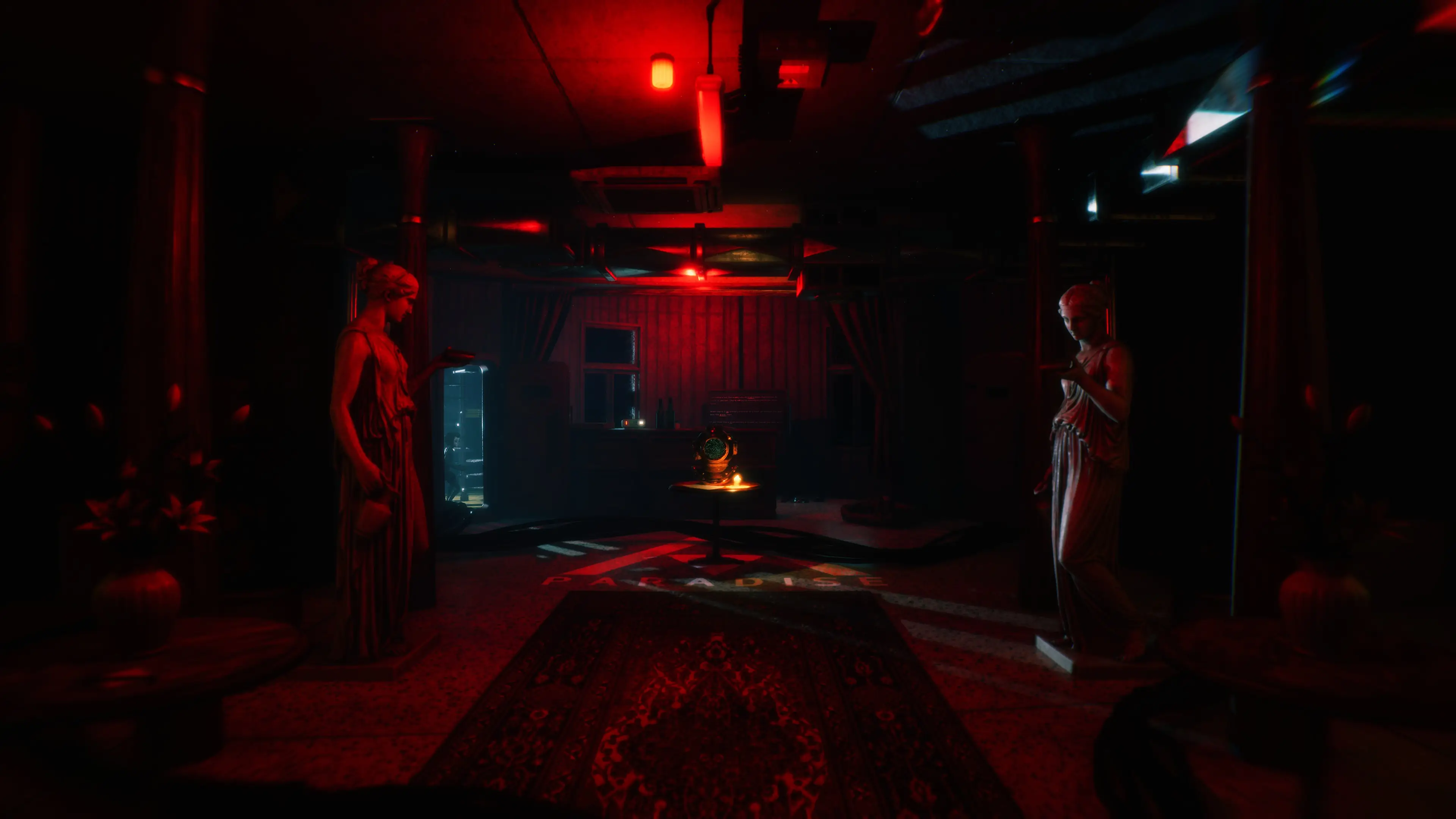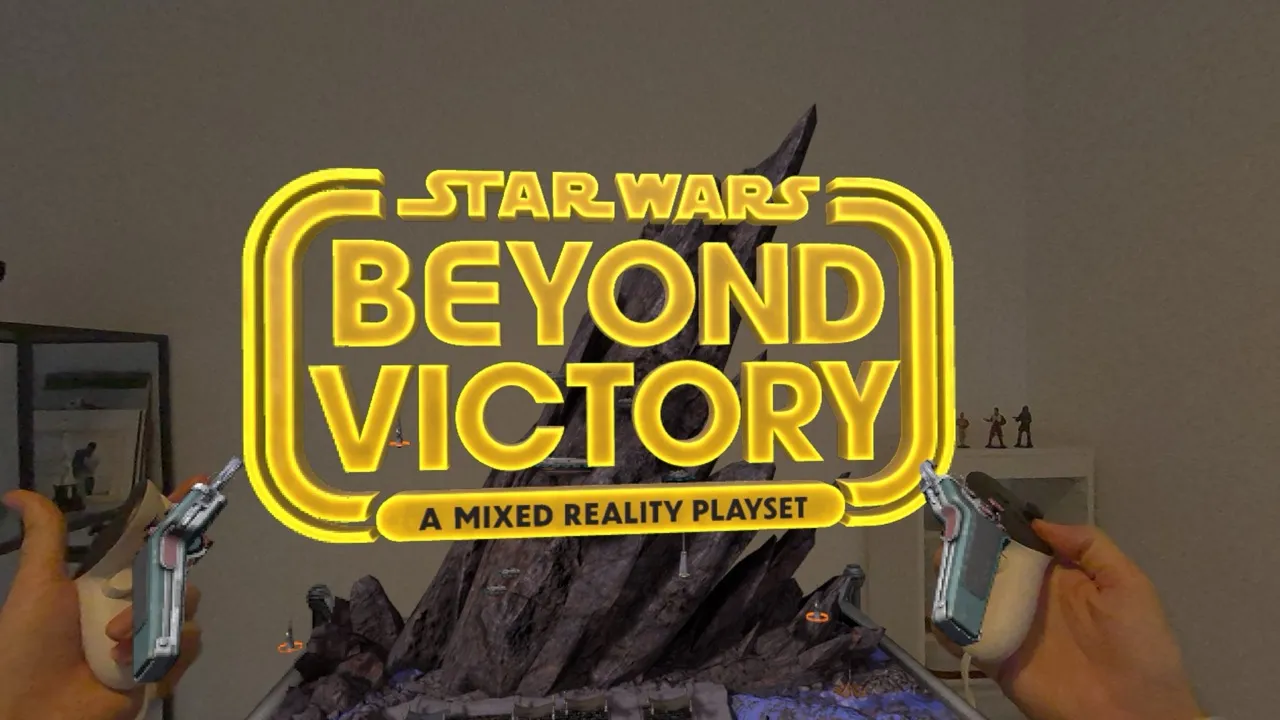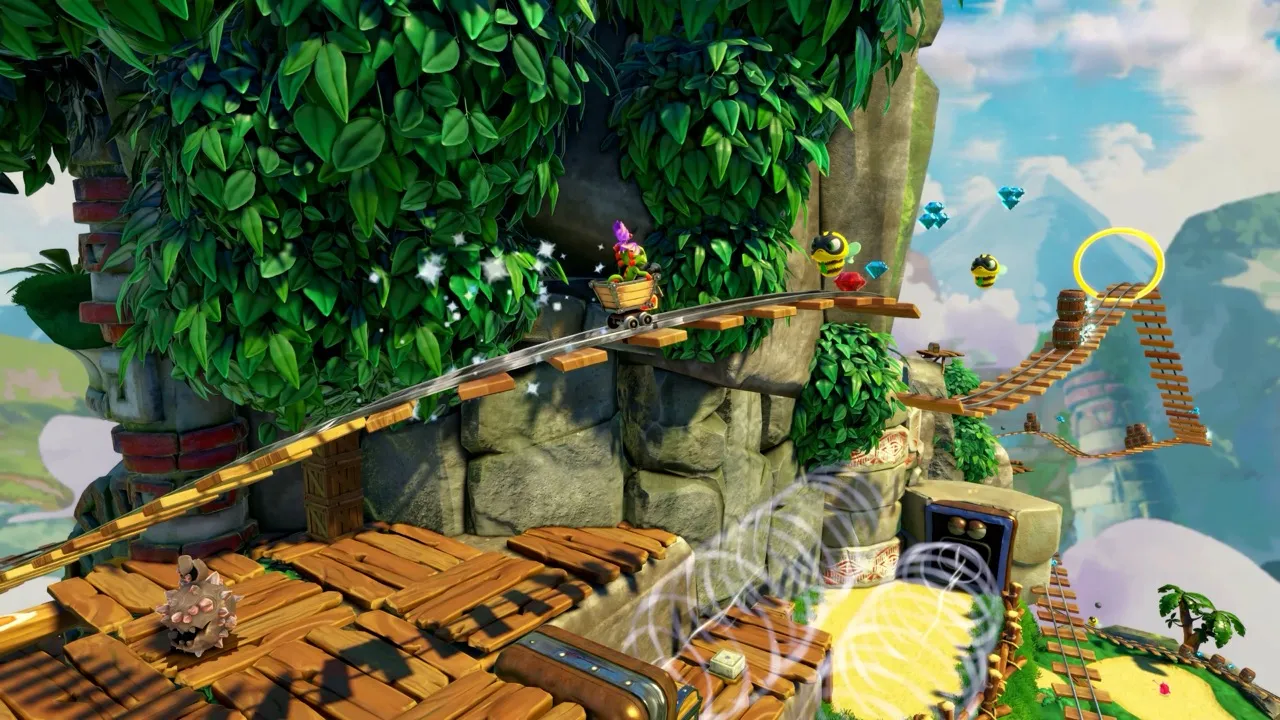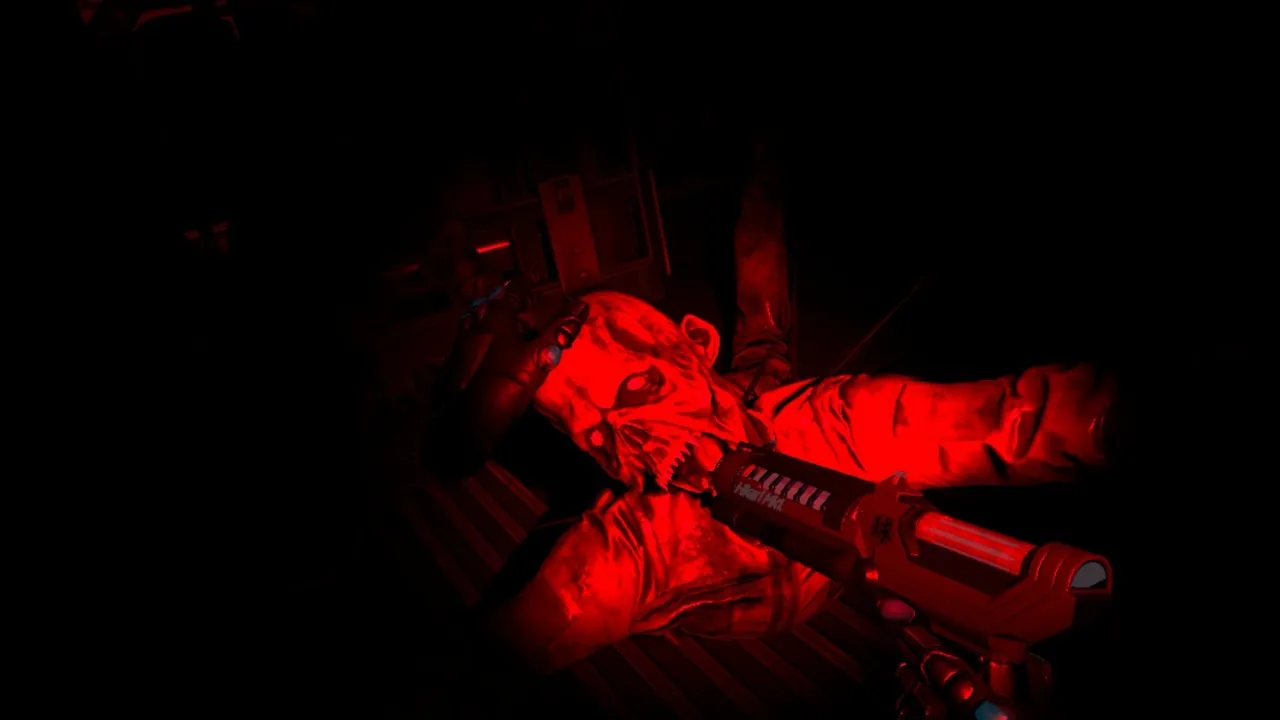P1: Anchor Light is one of those strange, unsettling games that slowly crawl under your skin.
P1: Anchor Light is one of those strange, unsettling games that slowly crawl under your skin. It looks simple at first glance. You walk down a corridor, spot something that feels off, and react accordingly. But once you start playing, you realize it is much more than that. It becomes an eerie test of memory, patience, and awareness, pushing you to question everything you see, hear, and even feel through the controller.
You play as an unnamed figure wandering through looping art deco corridors, endlessly repeating the same space over and over. Your job is to spot anomalies, small but unmistakable changes in your environment. A chair that wasn't there before. A light that flickers wrong. A portrait whose expression has subtly changed. When you find something that does not belong, you must pass through the corresponding door to fix reality and move forward. Miss an anomaly or react too slowly, and the entire world collapses, forcing you to start again.
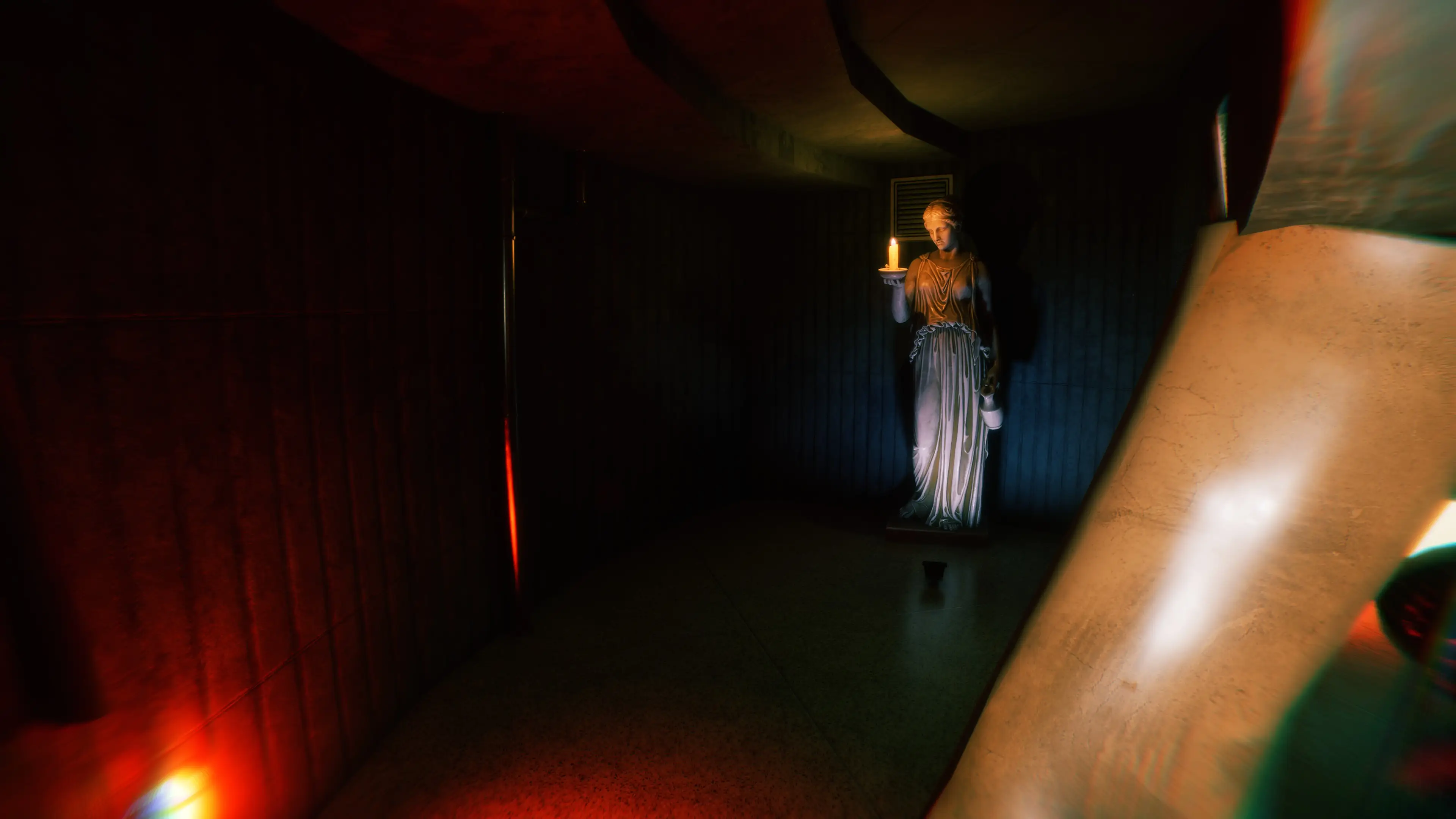
The core gameplay is about observation. Each run teaches you to memorize the corridor, down to the smallest details, so that the next time you enter it, your mind immediately senses when something feels off. The repetition is deliberate. It's the way the game trains you to notice differences, to sharpen your focus. The more you play, the more paranoid you become, and the more you begin to doubt what your own eyes are showing you. That psychological tension is what makes P1: Anchor Light so effective.
What really sets it apart from other anomaly-hunting titles is how cleverly it uses the PS5 hardware. During a sequence where a robotic voice counts down numbers, you are told not to move. In those moments, the game listens through the DualSense microphone. Any sound you make, even a quiet breath, can alert the entity watching you. The controller itself becomes a weapon against you. You start holding your breath, tightening your muscles, praying your surroundings stay silent.
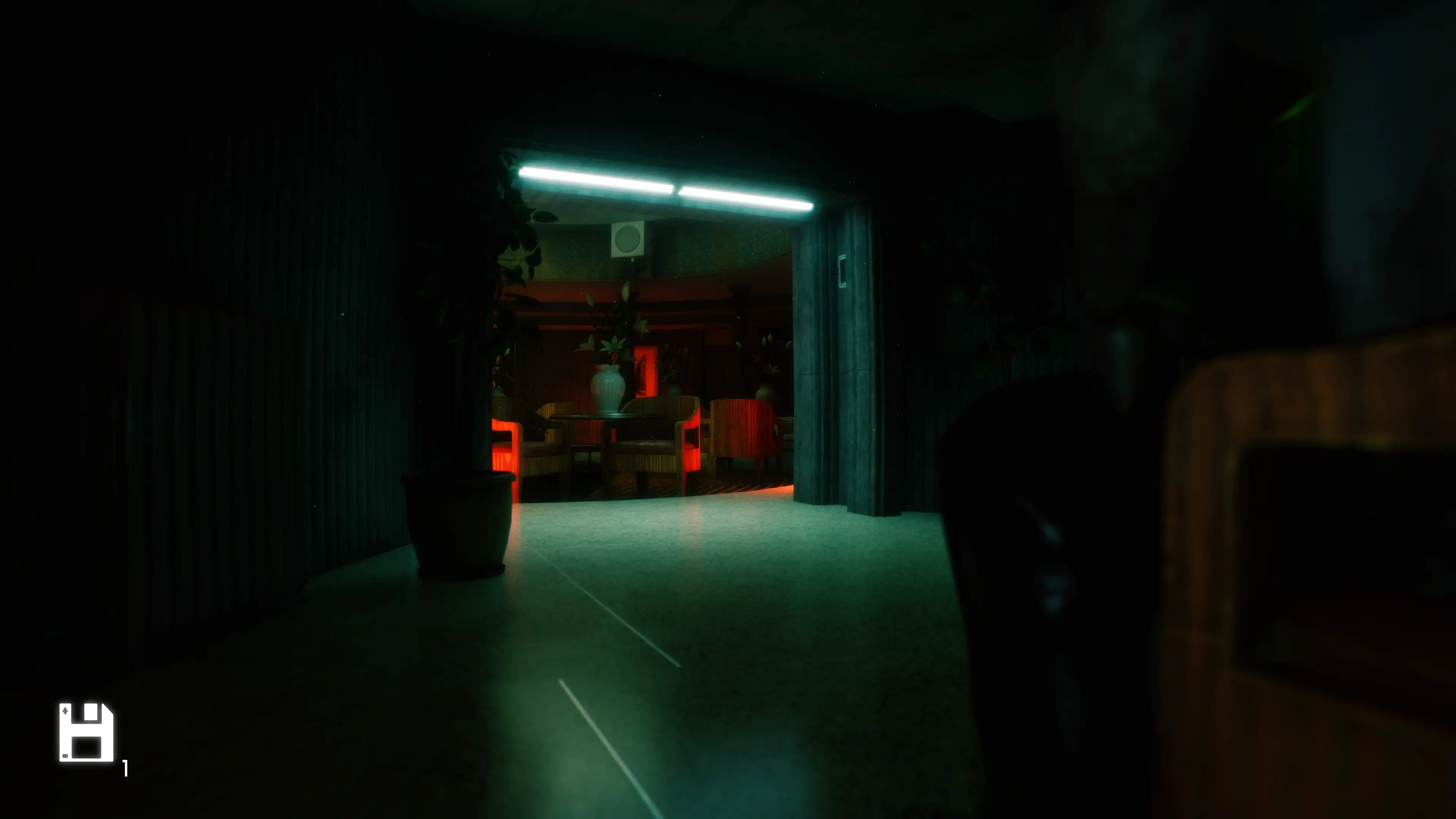
There's another layer of tension with the motion sensor. When the light on your controller glows red, you must stay perfectly still. If you twitch, tilt, or squeeze the controller even slightly, the system detects it and throws you back to the start. When the light turns green, you can move again. It sounds simple, but in practice it's a nerve-wracking experience. You're fighting your own body as much as the game itself. The pulsing red light feels like a heartbeat, syncing with your fear as you stand frozen, waiting for the moment it's safe to move.
These mechanics make P1: Anchor Light feel deeply immersive. You are not just playing the game; you are physically inside its rules. But as effective as these features are, they also come with frustrations. The microphone can be overly sensitive, picking up background noises or slight exhalations even when you are doing everything right. The motion detection can sometimes misread a still controller as movement. If your DualSense has any degree of stick drift, those moments will test your patience. It is hard to stay calm when you are unfairly punished for something outside your control.
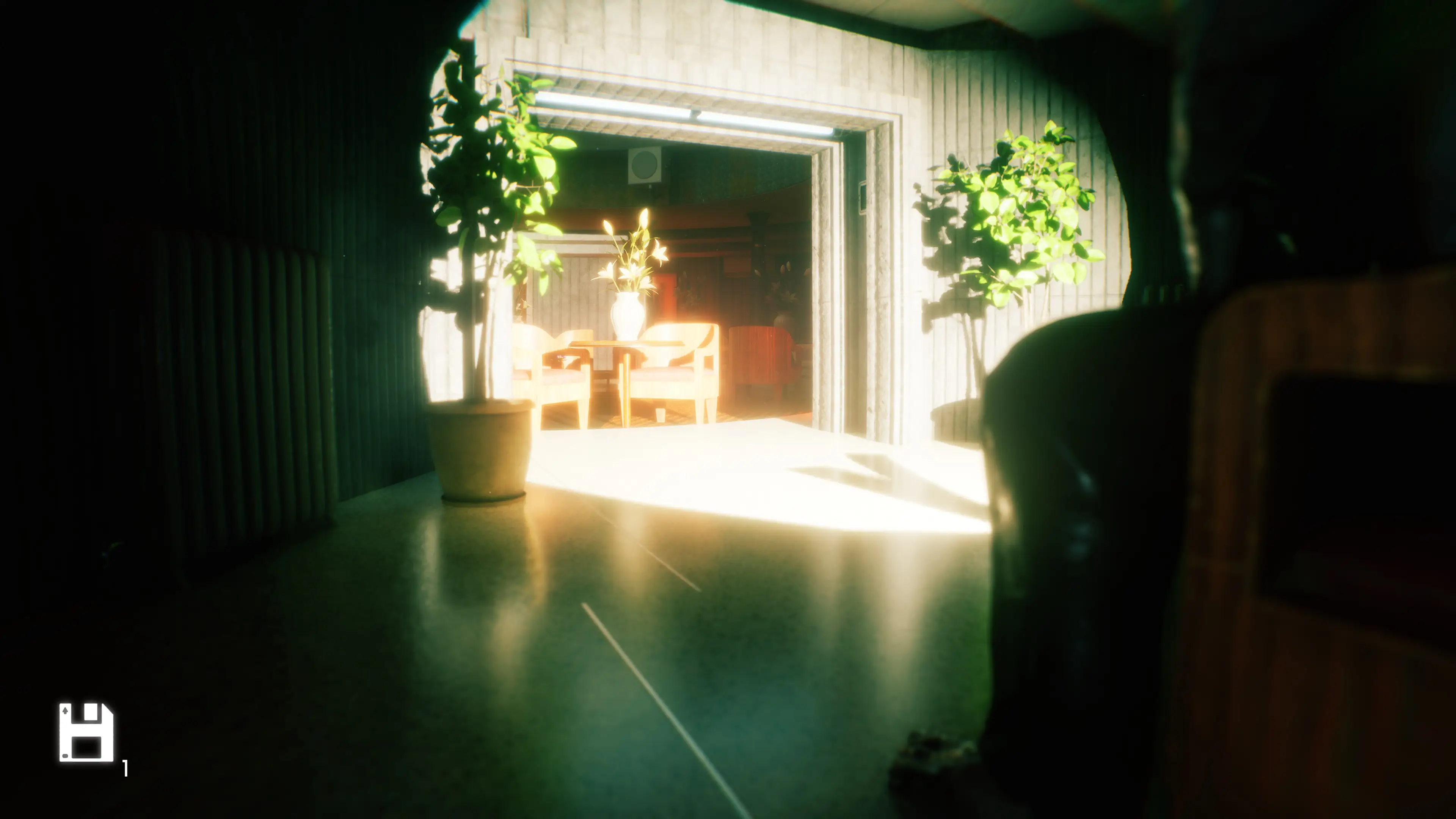
Visually, the game is a treat. The art deco aesthetic is beautifully realized, with golden trims, symmetrical patterns, and elegant fixtures decorating every corner. It feels like walking through a forgotten luxury hotel frozen in time. The attention to detail is remarkable. You can tell every wall texture and light fixture was designed to invite scrutiny. The problem is that the game is just too dark. Much of that artistry hides behind heavy shadows, and sometimes it's hard to distinguish anomalies simply because you can barely see what's around you. A small adjustment to brightness or contrast would have gone a long way.
The other major issue lies in performance. P1: Anchor Light runs at a locked 30 frames per second on PS5. That might have been an intentional artistic choice, maybe to create a dreamlike or slow, deliberate tone. But on modern hardware, it feels like a missed opportunity. The movement lacks the fluidity that the experience deserves. The game's slow pacing already demands patience, and the lower frame rate makes it feel heavier than it should. It doesn't ruin the game, but it definitely affects the immersion. You can't help but wonder how much smoother and more responsive it would feel at 60fps.
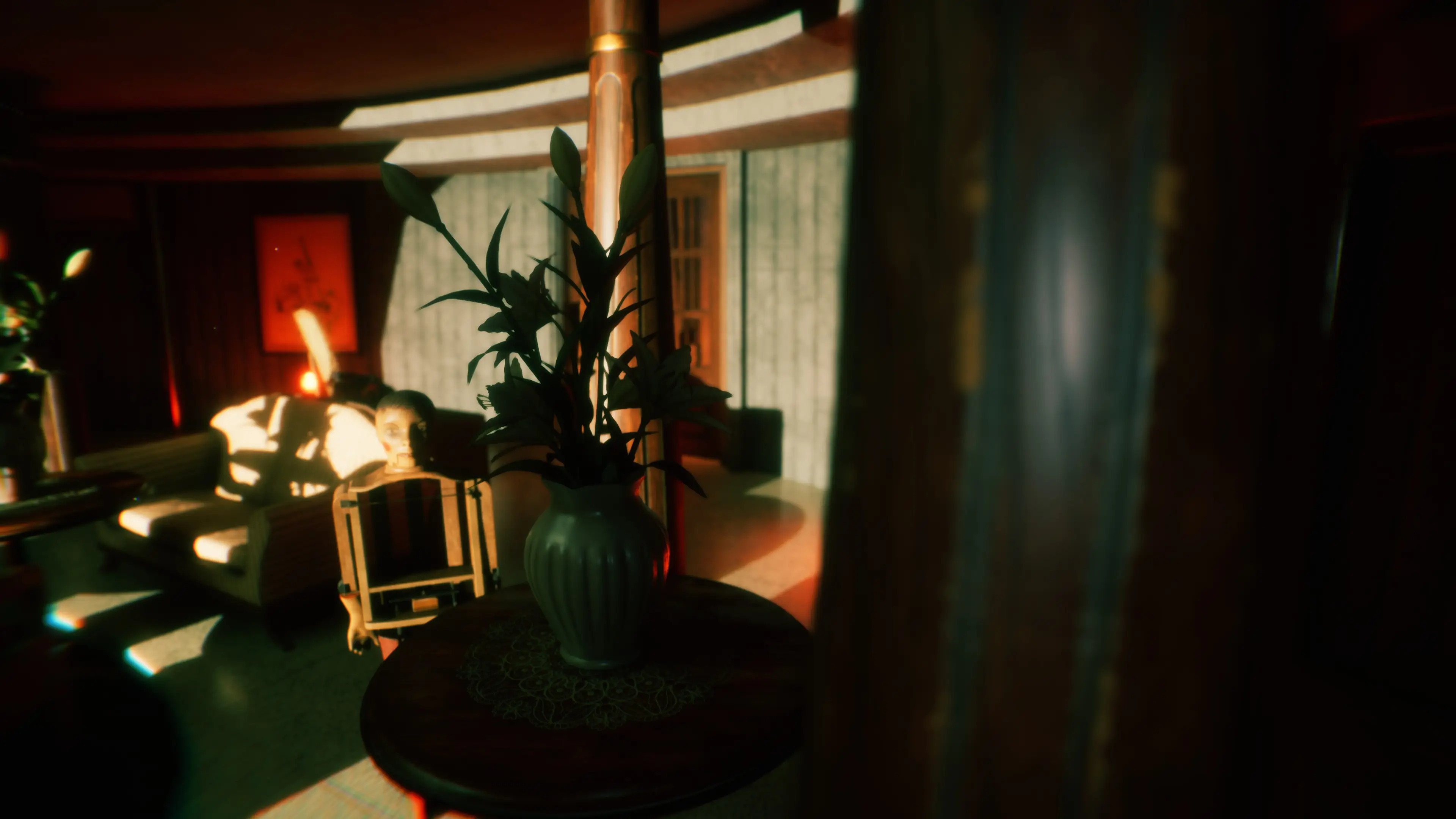
Sound design is where P1: Anchor Light truly shines. The echo of your footsteps, the creak of wood, the distant hum of machinery, all come together to create an oppressive atmosphere. Every noise feels deliberate and placed to unsettle you. There are moments when silence itself becomes deafening. You'll hear the faintest static through your controller, the muffled breath of something unseen, or a door quietly groaning in the distance. It builds an almost unbearable tension. The audio isn't just background noise; it's an integral part of gameplay. You rely on it to spot anomalies and to gauge when danger is near. When the game tells you not to breathe, it feels like it's holding its breath with you.
The experience is short, around two hours if you are careful and methodical. It doesn't try to overstay its welcome, and that's to its benefit. The loop of walking, observing, and correcting anomalies could have grown repetitive over a longer runtime, but here it feels perfectly paced. Each new cycle adds a bit more pressure, and by the end, the game has thoroughly conditioned you to notice every imperfection in your surroundings. You start to question yourself constantly. Did that door always have that handle? Was that lamp always that tall? Even after putting down the controller, you find your brain scanning your real room for inconsistencies.
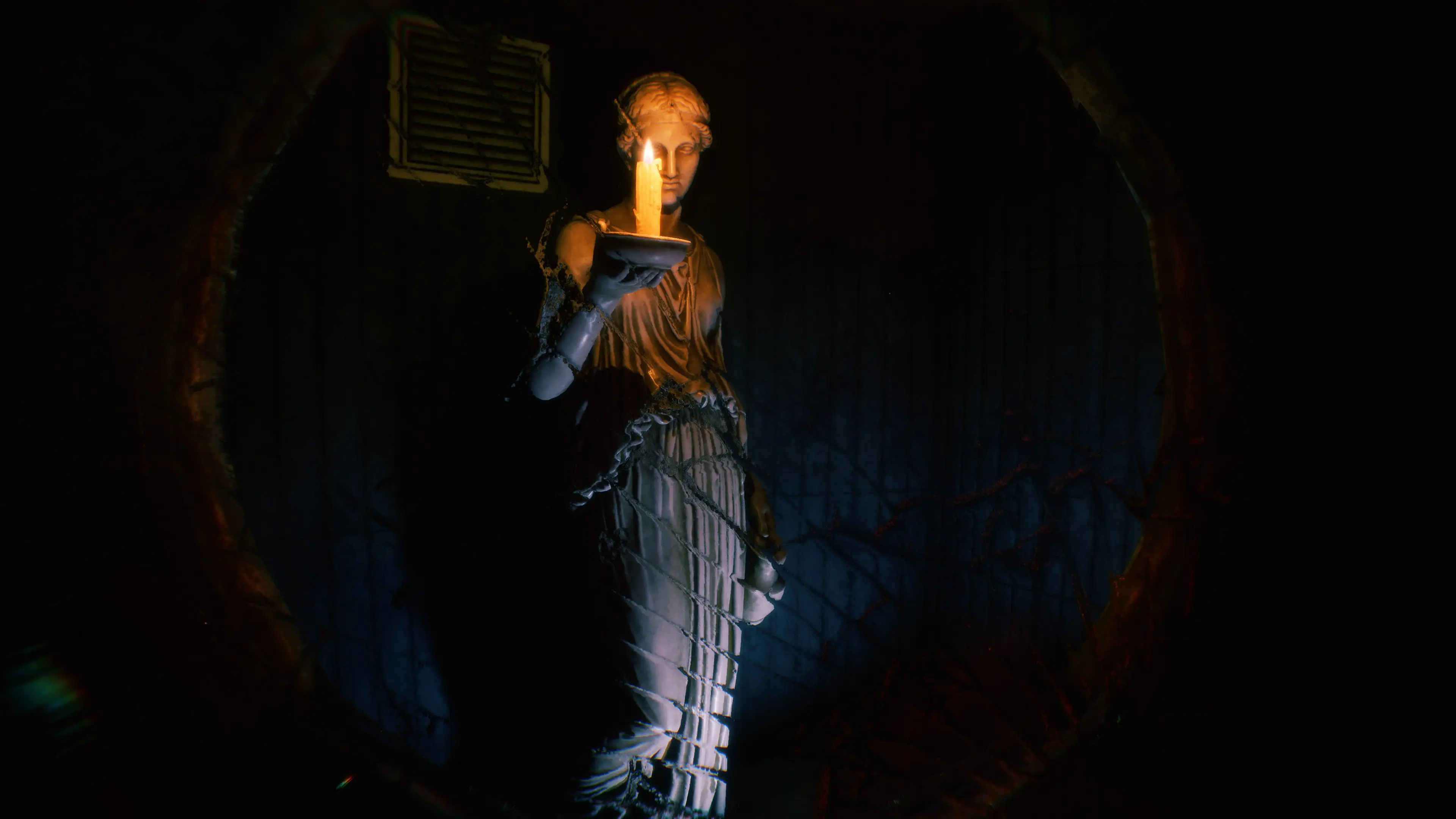
There's a quiet beauty to the whole experience. P1: Anchor Light doesn't rely on loud jump scares or cheap tricks. It's a slow, deliberate horror that gets under your skin through patience and restraint. It's about the fear of being watched, the tension of standing completely still, and the doubt that creeps in when your own senses betray you. The best moments are when the game makes you hold your breath, both literally and metaphorically, and you feel a genuine sense of relief when you make it through unharmed.
Still, this isn't a game for everyone. Some players will find the pacing too slow, the mechanics too demanding, or the low visibility too frustrating. Others, like me, who enjoy slow-burn psychological horror, will find a lot to appreciate. The combination of art deco beauty, surreal tension, and hardware-based mechanics creates something distinct and memorable.
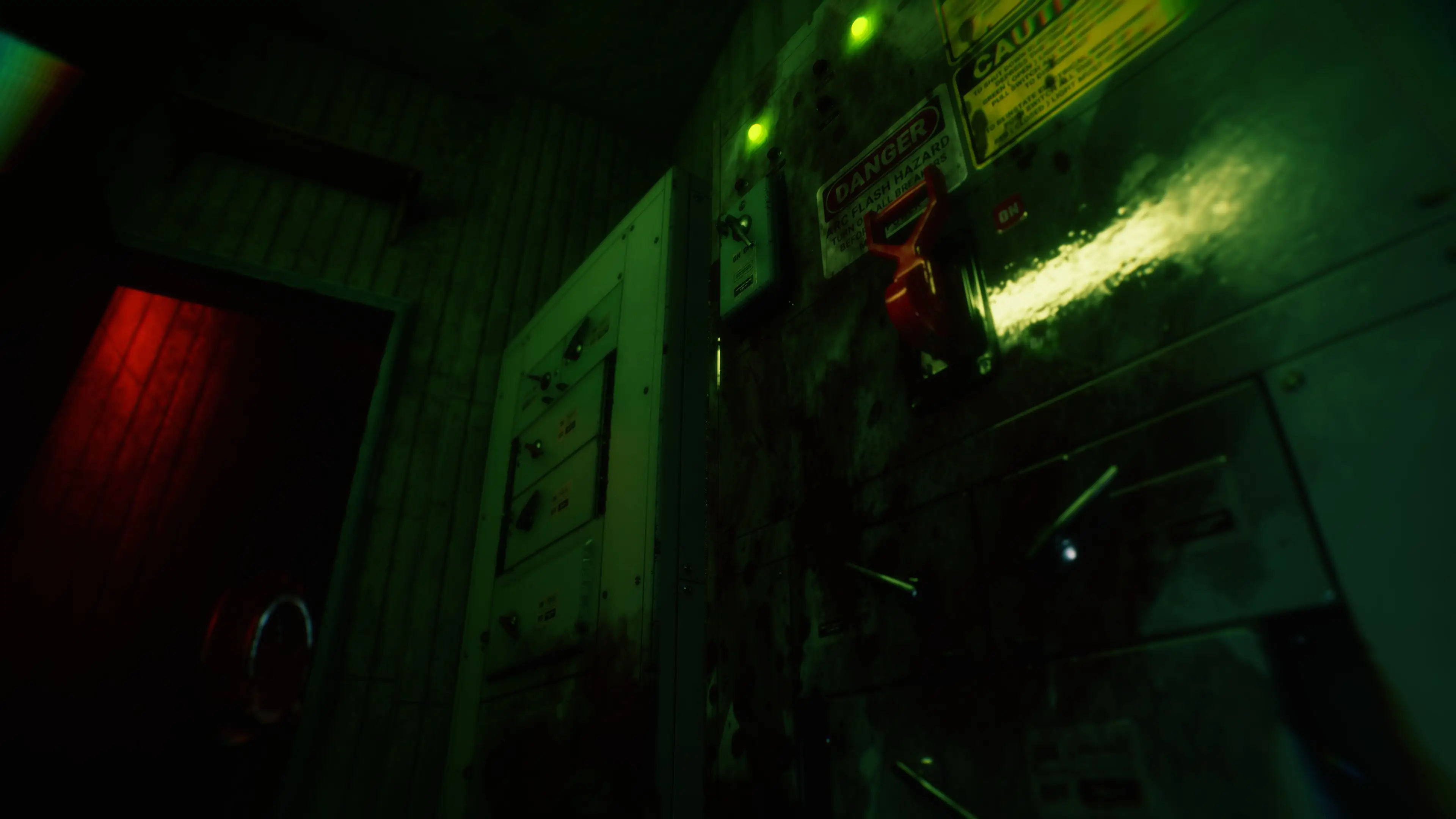
P1: Anchor Light feels like an experiment in awareness and restraint. It asks you not just to observe the game world but to control your own body and mind. When everything works as intended, it's a masterclass in tension. When it doesn't, it's an exercise in frustration. But even with its flaws, it's hard not to admire the ambition and the atmosphere it creates.
If you loved games like Captured or The Exit 8, you will likely enjoy this too. It's short, strange, and atmospheric, offering that same sense of eerie repetition and quiet discovery. It might not run perfectly on PS5, but when the lights dim, the red glow pulses, and you are told not to move, you'll feel something few games can deliver: the thrill of absolute stillness. Thanks for reading!
The game was reviewed on a PS5 via a promo copy provided by the publisher. P1: Anchor Light is available on PS5, PC and soon on Xbox.
